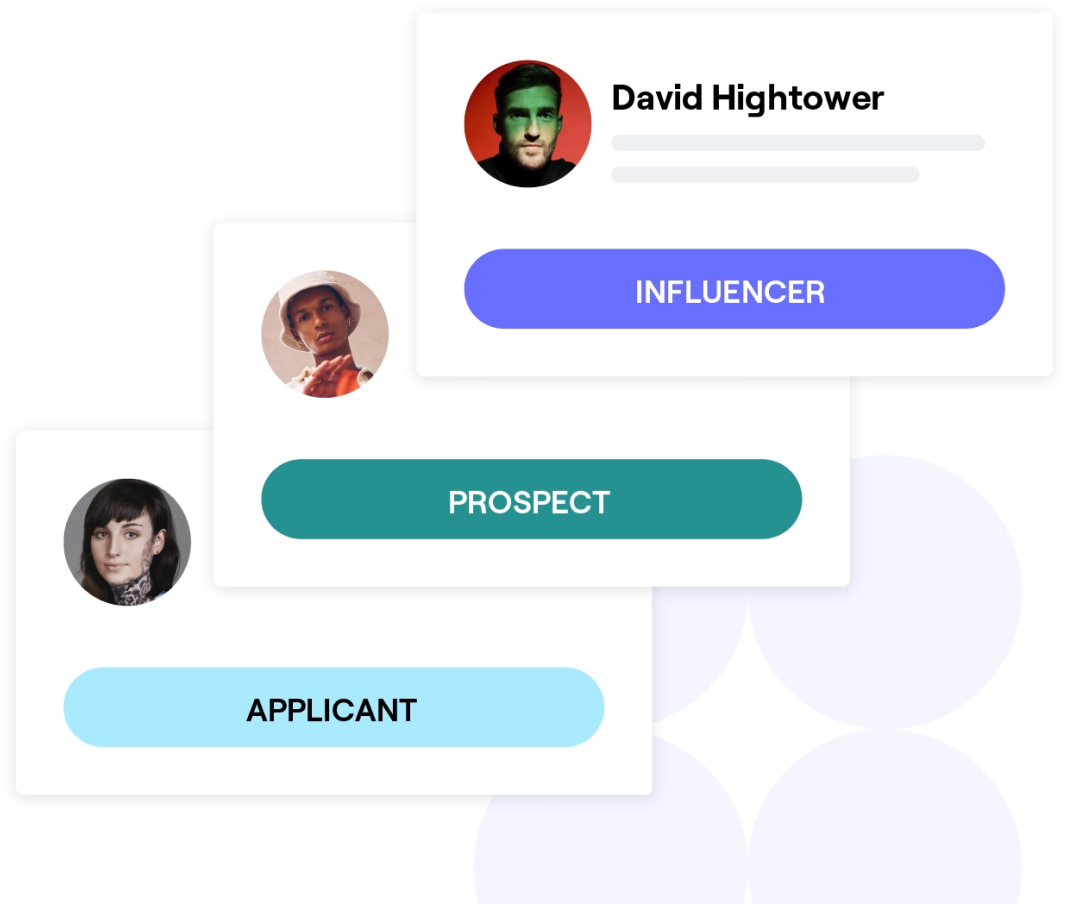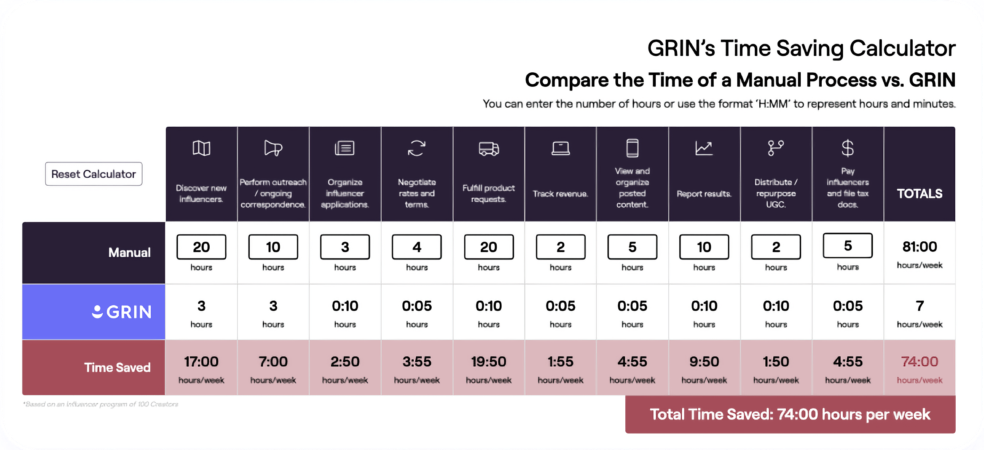Over the last decade, both influencer and affiliate marketing have helped DTC and ecommerce brands earn millions in sales and generate more conversions than they were ever able to achieve with traditional advertising like radio and television.
Social media creators are the type of real people consumers now need to hear from before buying a product. They are also the force behind both affiliate and influencer marketing.
But which approach is right for your brand?
Let’s have an in-depth look at affiliate marketing vs influencer marketing to help understand the best strategy to maximize ROI and drive sales.
Affiliate marketing vs influencer marketing: The main difference
Revenue sharing often blurs the line between affiliate and influencer marketing, but just because both approaches can involve creator commissions doesn’t mean the compensation models work the same.
Affiliate marketing is used almost exclusively to drive traffic to a brand’s website to complete a transaction. Brands don’t pay affiliates for brand awareness, increased web traffic, or cold lead generation. Affiliates are only paid for making a sale, which means they must be motivated and constantly work to boost their conversion rates.
In influencer marketing, brands establish more long-term KPIs, such as clickthrough rates, user-generated content, and increased SEO. The influencer model focuses on content creation when promoting brands, products, or services, and marketers partner with influencers for their credibility, authenticity, and sustainable inbound traffic. As a result, influencer compensation includes commission, product gifting, flat rate fees, or a combination of all three.
Benefits of influencer marketing
So, what are the key benefits of influencer marketing?
Build credibility and trust
Social media influencers with the most loyal followings have not only established themselves as experts in their respective niches, they also serve as a source of inspiration for their fans. As a result, audiences are far more likely to trust the recommendations and opinions of their favorite creators than traditional radio and television marketing techniques.
Studies show that purchase intent increases by more than five times when brands collaborate with influencers on social media posts versus posts with no creator partnership. Additionally, 40% of people have reported making a purchase as a result of an influencer post.
Highly focused and relevant
Partnering with the right influencer ensures your brand’s message always gets to your target audience.
For example, if a brand sells workout gear, its target audience is people who are into sports and fitness. If that brand partners with a fitness blogger, that creator’s fans are likely into working out and interested in gear to help them train. If someone sees their favorite creator using that brand’s gear to reach their fitness goals, the likelihood of becoming a believer themself massively increases.
Controlled approach
As a brand, you drive the entire influencer marketing campaign. From outreach and influencer recruitment to creating the content strategy and distribution methods, you have more control than is allowed by most other forms of marketing. The amount of returns these campaigns generate is limitless if planned well.
Incredible results
Regardless of industry, influencer marketing works for all brands if their audience is on social media. In fact, studies show that brands make $6.50 for each dollar invested in influencer marketing and acquire customers faster than any other marketing approach.
Benefits of affiliate marketing
Easy to implement
Affiliate marketing is relatively simple and does not require a huge amount of bandwidth to implement. Once brands establish a mechanism for creating a unique URL for each affiliate, all they need to do is track conversions from each sale. It is important to note, however, that brands must be well-established to support a successful affiliate program.
Only pay for results
Affiliate marketing is a risk-free strategy since affiliates only make money when a sale occurs via affiliate link. As opposed to traditional advertising, brands don’t pay for impressions or clicks. Regardless of the clicks to an affiliate link, commission is only paid in the event of a sale.
Increase traffic (and sales) on website
Although affiliate links do not have a direct impact on search engine rankings, they do increase the amount of traffic to a webpage and increase the odds of converting a sale. The excitement affiliates create around a product or service produces a “halo effect” that increases consumer trust and causes more people to search your product and navigate to your pages.
What brands should consider when making a decision
Brands should always consider the pros and cons before deciding if influencer marketing or affiliate marketing is best for them. Here is a quick look at what to expect from each.
Influencer marketing
| Pros | Cons |
| Ability to reach larger, lookalike audiences shared by influencers | Properly vetting influencers takes time and energy |
| Content creation to be repurposed in other marketing strategies. | Selecting the “wrong” influencers can hurt your brand |
| Influencers help build trust and credibility | Tracking results is difficult without the right tools |
| Build more brand awareness | Involves higher risk |
Affiliate marketing
| Pros | Cons |
| Easily expand number of affiliates or affiliate networks | Results are inconsistent |
| Requires $0 upfront to start program | Some affiliates use questionable tactics like spamming, false advertising, etc. |
| Extremely flexible programs | Limited control over affiliate content |
| Easy to start | Prone to fraud like bots or scripts, performing transactions with stolen information, fake email lists, etc. |
Tools you need to manage influencer marketing
Influencer marketing can be tricky when you first start, but implementing the right tools saves you countless hours and headaches as you discover the approach that works best for you.
Here is a look at what kind of tools to consider:
Discovery and recruitment
The best influencers are the ones that fully align with your brand mission and values. Pick a tool that will help you discover influencers that are relevant to your brand and allows you to find other influencers that are similar to them. This tool should also help you audit each influencer based on engagement rate and other credibility scores.
Relationship management
As your influencer marketing program grows, consider a tool that allows you to manage all your creator relationships in a single place. This should include an integrated email system, individual creator profiles, and anything else that helps you nurture long-term relationships with your influencers.
Easy content searching
One of the most helpful tools for influencer marketing is one that will compile all your influencer content into a single media library. Then all you have to do is search by relevant keyword, hashtag, etc. when you want to repurpose an amazing piece of content.
Reporting and analytics
Your influencer marketing campaign can’t succeed if you don’t have an effective way to determine what works and what does not. Make sure to find a tool that helps you track ROI metrics and prove the success of your program.
Tools you need to manage affiliate marketing
Just like influencer marketing, the right tools are essential to a successful affiliate marketing program. Without them, you will overwhelm your team and turn affiliates off from working with you in the future.
Here are some of the most important tools to consider for your affiliate marketing campaign:
Reliable affiliate link generation and tracking
First and foremost, you’ll want an easy way to generate unique links for your affiliate community so you can track revenue produced by each affiliate and attribute ROI to each individual performer, as well as the program overall. A software that comes with campaign briefs that include requested copy for influencers, product placement guidelines, etc. is an added bonus.
Smart discount code management
Leaked discount codes wreak havoc on tracking and margins, but can be eliminated with the right tool. Look for one that allows you to easily disable compromised discount codes and reconciles any commission owed from fraudulent use of that code.
Custom branded affiliate pages
It’s best that all materials and messaging comes from you when nurturing affiliate relationships. Look for a tool that allows you to build custom, branded landing pages to house your full creator campaign proposals so you don’t have to go through any middlemen.
Integrated campaign workrooms
An affiliate management platform that integrates with your ecommerce shop is a must for any program. These integrations allow you to view real-time inventory, give affiliates their choice of product, and ship and track those products all the way to the post it appears in.
How brands use affiliate and influencer marketing together
Oftentimes, a strategy that combines influencer and affiliate marketing is the best approach. Not only can you reach relevant audiences, but you also achieve more objectives at once. For example, an affiliate program can help your brand drive more conversions while your influencer program increases brand awareness, trust, and credibility.
The right software allows affiliate and influencer marketing to occur simultaneously. Brands can place tracking links within influencer content to track conversions from affiliates, while also following influencer marketing campaigns to analyze and report on more long-term goals with a focus on a more authentic connection with your target audience.
Determining ROI with affiliate marketing and influencer marketing
Determining the ROI of your affiliate or influencer marketing campaign is the most important part of running a successful program.
Be sure to establish clear goals before you get your campaign started so you know exactly what you need to measure to determine success. Some common goals include:
- Increased brand awareness
- More conversions
- More engaging content
- Increased web traffic
For more in-depth information on how to track and measure specific campaign goals, The Total Guide to Influencer Marketing Measurement can be a valuable resource. It also contains a guide on how to calculate exact ROI for your influencer and affiliate marketing campaigns.
Brands succeeding with influencer marketing campaigns
Adidas
In an attempt to reach a younger audience, Adidas implemented an influencer marketing strategy on Instagram – a platform with more than half its users under the age of 35.
Adidas collaborated with influencers like Iga Wysocka and Selena Gomez to introduce the #MyNeoShoot contest. The company racked up 12,000 contestants and increased their follower count by 41,000 during the campaign. It also increased sales by 24%, while Nike sales dropped by 9% during the same period.
LinkedIn Learning (formerly Lynda.com)
Lynda.com (now Linkedin Learning) collaborated with a number of YouTube influencers to promote its e-learning company.
Their most popular influencer marketing campaign reached roughly 46 million people who were subscribers of YouTubers like Rooster Teeth and The Fine Brothers. Jack Douglass incorporated Lynda content into many of his videos – some of which generated more than 25 million views.
Lynda.com was bought by LinkedIn for $1.5 billion in 2015.
Brands succeeding with affiliate marketing campaigns
BodyBuilding.com
BodyBuilding.com gives its affiliates the tools they need to drive traffic to its website, and pay a commission based on each affiliate’s success.
The tools include text links, banners, and articles affiliates can use on their sites and social posts. Each has its own unique URL that BodyBuilding.com uses to measure the amount of traffic generated.
BodyBuilding.com pays its affiliates an 8% commission rate on orders completed by new customers, and a 3% commission rate on orders completed by repeat customers.
Petco
Petco offers its affiliates a 8% commission rate on every purchase made by customers they refer.
Once an affiliate application is approved, Petco sends its partners seasonal banners, graphics, textual links and marketing support to help affiliates drive as many sales as possible. Petco affiliates are also given a username and password so they can view reports on how their links are performing and how much revenue they have earned.
Conclusion
Determining which strategy – influencer marketing, affiliate marketing, or both – is ideal for your brand depends on your goals and bandwidth. Both enhance ROI and drive sales and conversions when implemented correctly. But both can hurt your brand when managed poorly.
Choosing the right influencers and affiliates, as well as having the proper tools in place to manage them effectively, are the only ways to make sure your programs succeed. When all the pieces are in place, your brand could very well be the next household name on every consumer’s lips.
Learn more about influencer marketing: Influencer Marketing 101














